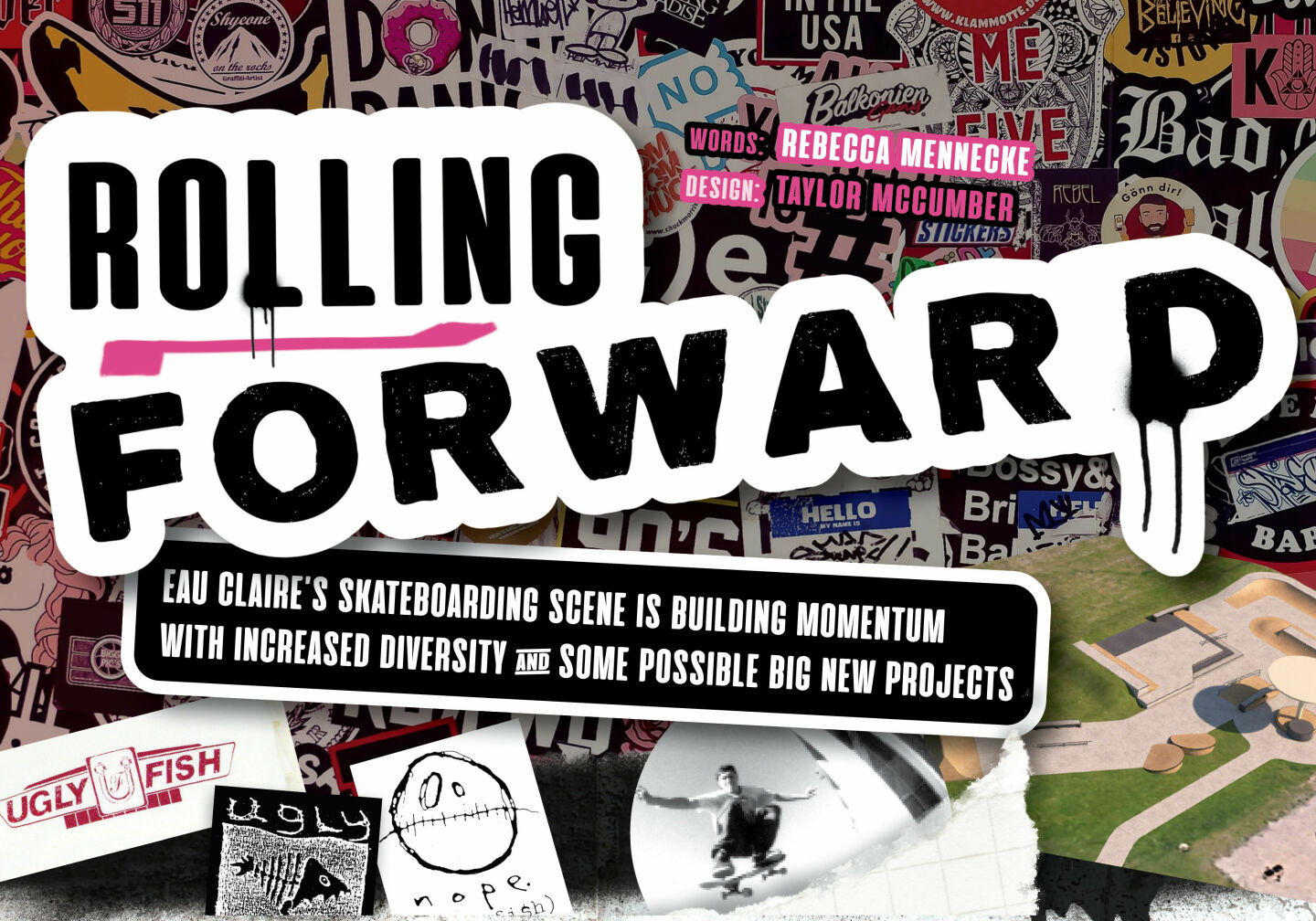
Skateboarding – known for its punk-alternative-rebel identity – has always been about including people who haven’t felt that sense of a tight-knit community elsewhere. After the sport’s inclusion in the summer 2020 Olympics in Tokyo – marking the first time skateboarding was considered one of the top competitive sports in the country – more women and LGBTQ+ skaters have hopped on board to roll ahead, creating more momentum for an already-flourishing skateboarding scene in the Chippewa Valley. But a larger skate park in Eau Claire has been the main goal of the Eau Claire Skaters Association since its inception in 2009.
A New Skate Park Proposed In Upcoming City Council Budget Meeting
The Eau Claire Skaters Association is slated on the agenda for the Eau Claire City Council’s budget meeting on Monday, Nov. 8, where they will request $200,000 for a 5,000 square-foot skate park that is planned for Boyd Park.
The skaters association, which has raised $65K thus far, plans to contribute $75K of the $275K total price tag for the park, with goals to begin construction by as soon as this spring.
Check the Eau Claire Skaters Association Facebook page for the latest news »
A PEEK INTO THE HISTORY OF SKATEBOARDING'S RISING POPULARITY IN EAU CLAIRE
Here’s a look at the rise of skateboarding’s popularity in Eau Claire – from its underground identity in the early ‘80s to the rising momentum it sees today, with a proposal pending for a new skate park in Boyd Park, new school skate clubs, and – above all – the potential for a more robust skateboarding scene in the Chippewa Valley.
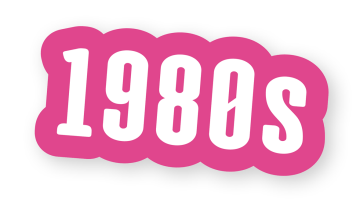 Perhaps the beauty of the Eau Claire skateboarding scene is that, for a long time, it was a hidden gem, known only by those who were part of it.
Perhaps the beauty of the Eau Claire skateboarding scene is that, for a long time, it was a hidden gem, known only by those who were part of it.
“Skate parks didn’t really exist until skateboarding became mainstream,” said Dan Ezra Lang, a longtime skater who now works as a graphic design lecturer at UW-Stout. “It was underground.”
Lang began skateboarding in the mid ‘80s after spotting a skateboarder doing tricks on the sidewalk. He immediately ran outside to learn more about skateboarding.
It was instantly alluring.
What tricks he didn’t learn from his friends, Lang said, he learned from mass media: TV, magazines, and videos that would eventually surface on the Internet, showing cool tricks that skateboarders could do.
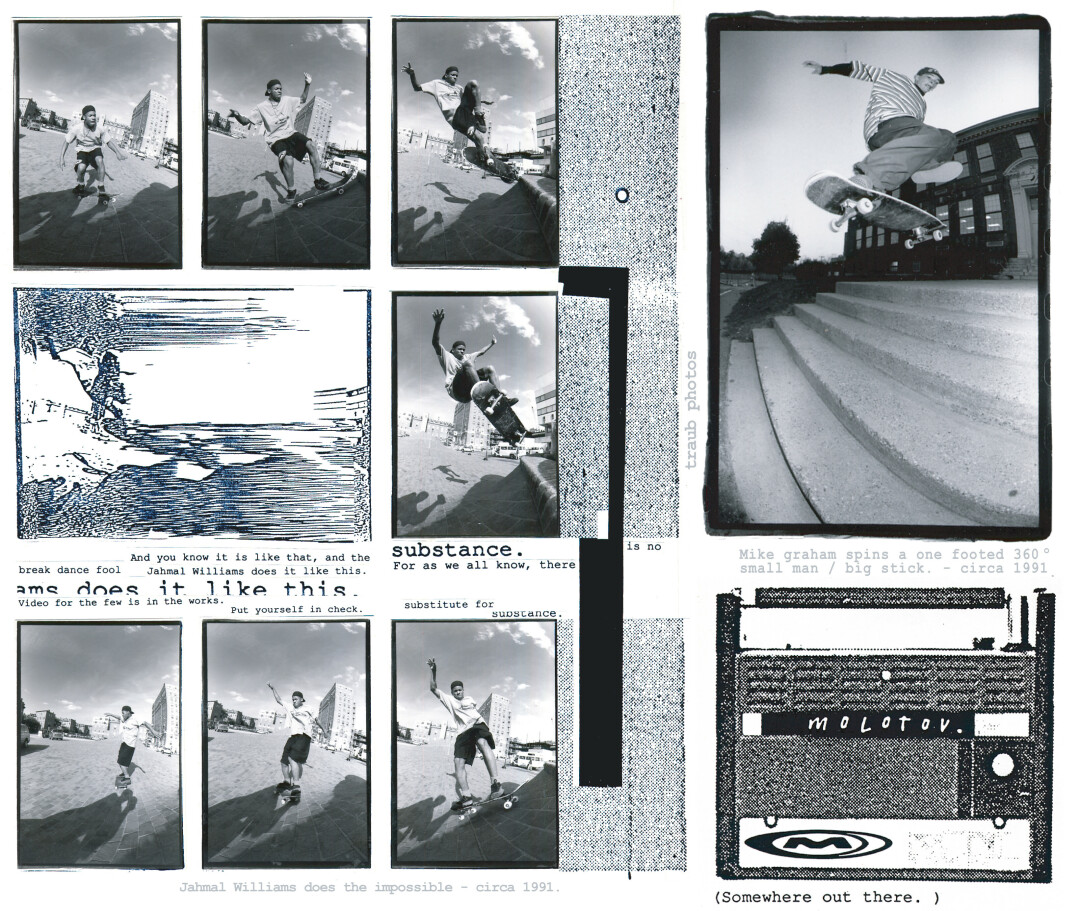
Lang and his friends would go on to exchange stickers, punk music recommendations, and zines – short magazines created using Xerox machines that included essays, music, interviews, drawings, and more – with a man by the name of “Mel Bend” – a pen name for Andy Jenkins, the founder and editor of Freestylin’, a BMX biking magazine based out of Los Angeles.


Lang designed logos inspired by skateboarding culture, such as his Ugly Fish logo, that were later integrated into Jenkins’ Club Homeboy brand.

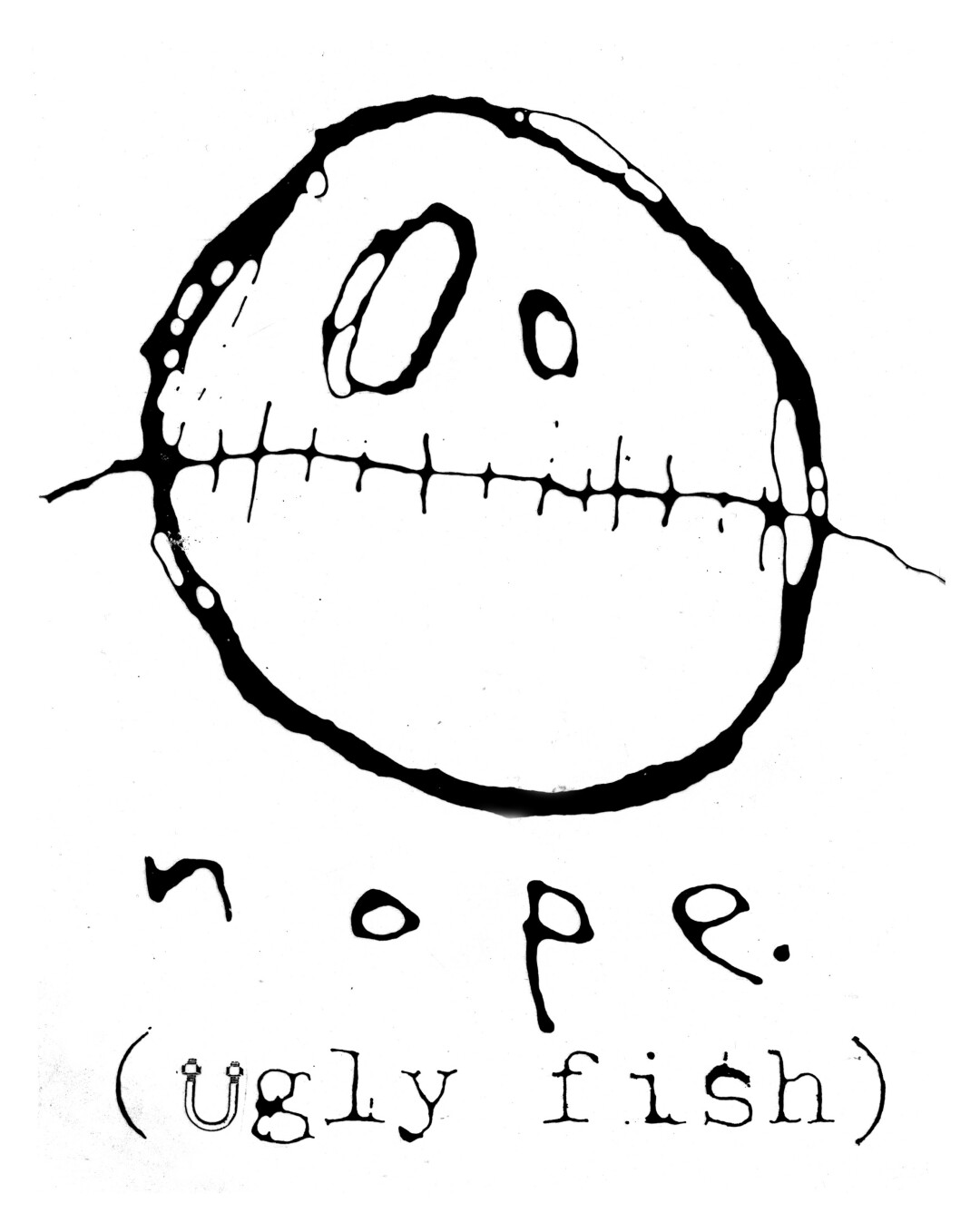
Skateboarding was about more than just the sport, Lang said. It was about the culture: the punk-rock, hip-hop, and alternative music taste; the style of clothes; and the outcast-slash-misfit, countercultural identity. Inspired by that culture, Lang pursued graphic design, and has designed album art for recording artists El-P, Aesop Rock, and Mr. Life, and has worked with national brands such as Sprite and Nokia.
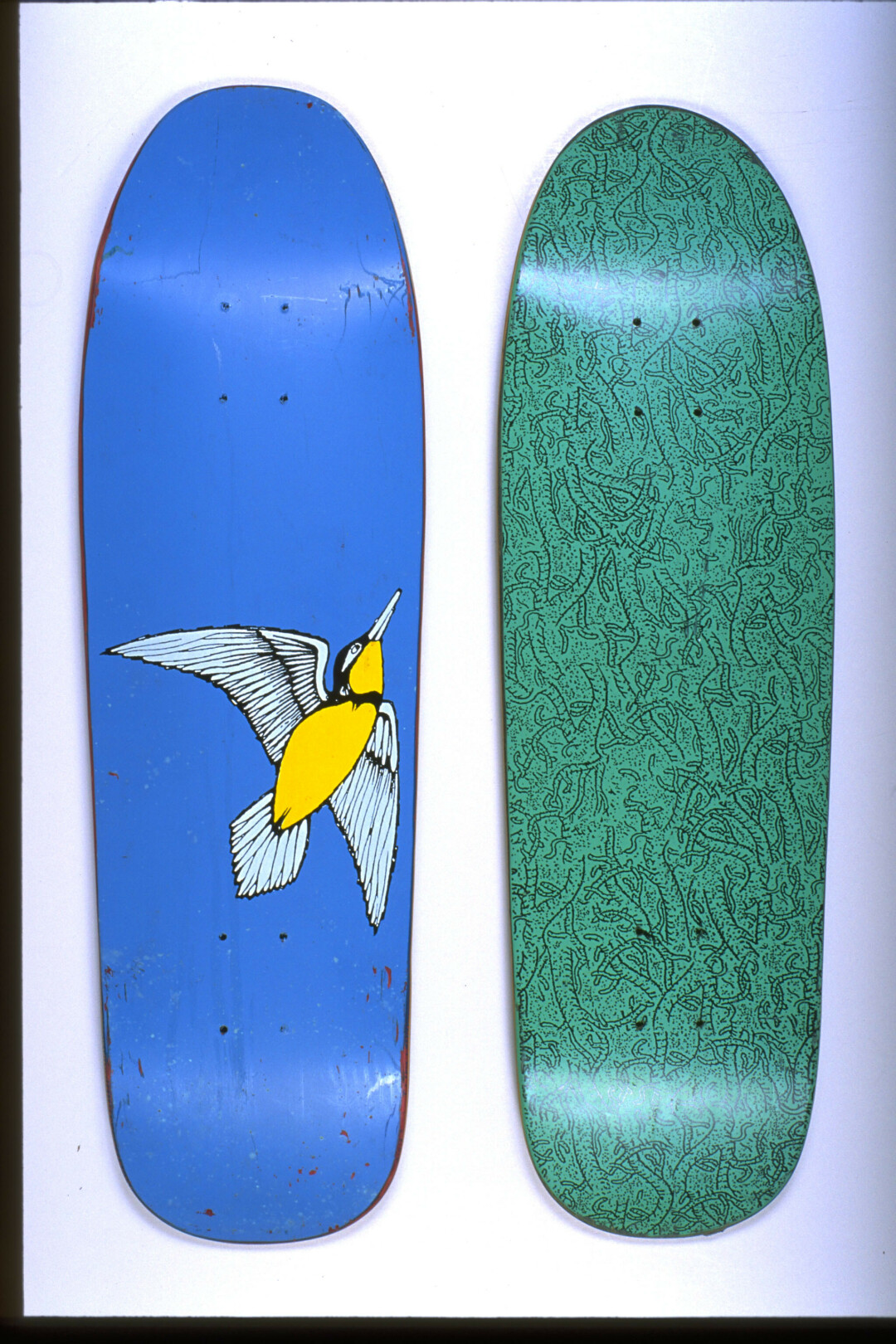



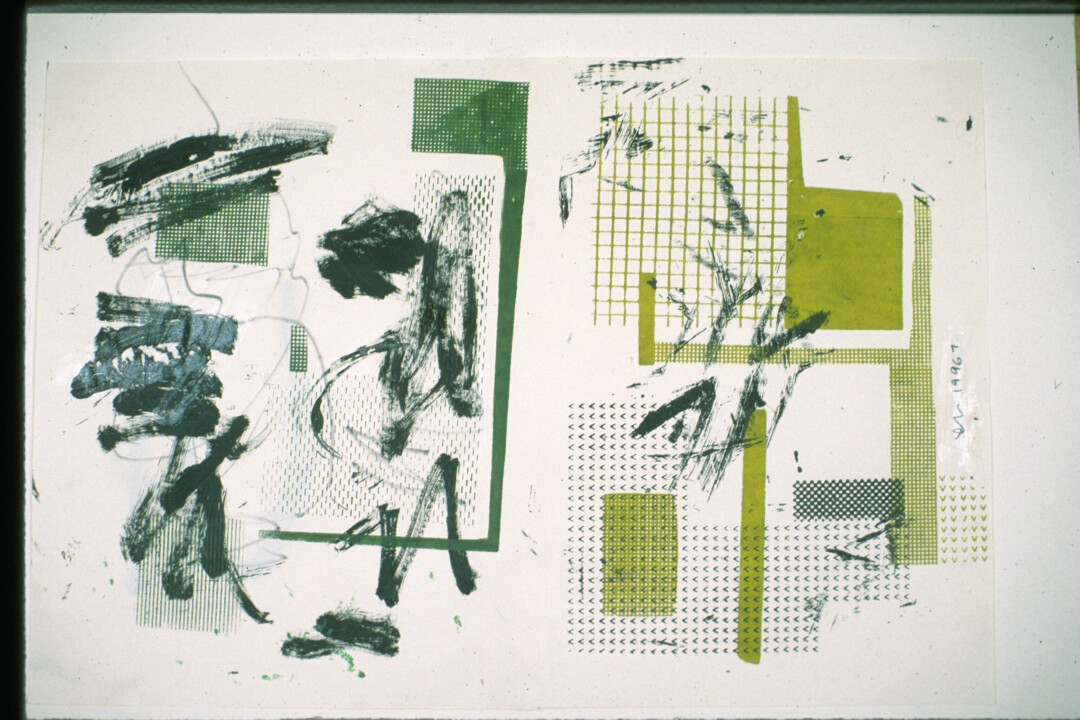
The community of skaters in the 1980s was small, mainly comprising Lang and a few friends – perhaps most notably brothers Andy Schansberg and Matthew Skjonsberg. Schansberg went on to launch his now nationally recognized skateboard brand, Molotov Skateboards.
“I try to keep Eau Claire a secret,” Schansberg said. “But at this point, it’s kind of hard, like with Bon Iver … it exposed what was cool about living in Eau Claire. ... When I think about dreams I have for my kids, it’s the life I had growing up in Eau Claire. Skateboarding was the extra spike in the punch.”

Skjonsberg pursued a degree in architecture from the Frank Lloyd Wright School of Architecture, later obtaining his doctorate degree. Now based in Switzerland, he designs and studies skate parks around the globe.
In 1986, however, the growing momentum for the scene slowed, as the Eau Claire City Council enacted its first ordinance regarding skateboarding, found in Chapter 13.12 of the Bicycle and Pedestrian Related Ordinances, making it illegal to skateboard in most streets, sidewalks, and public areas in Eau Claire.
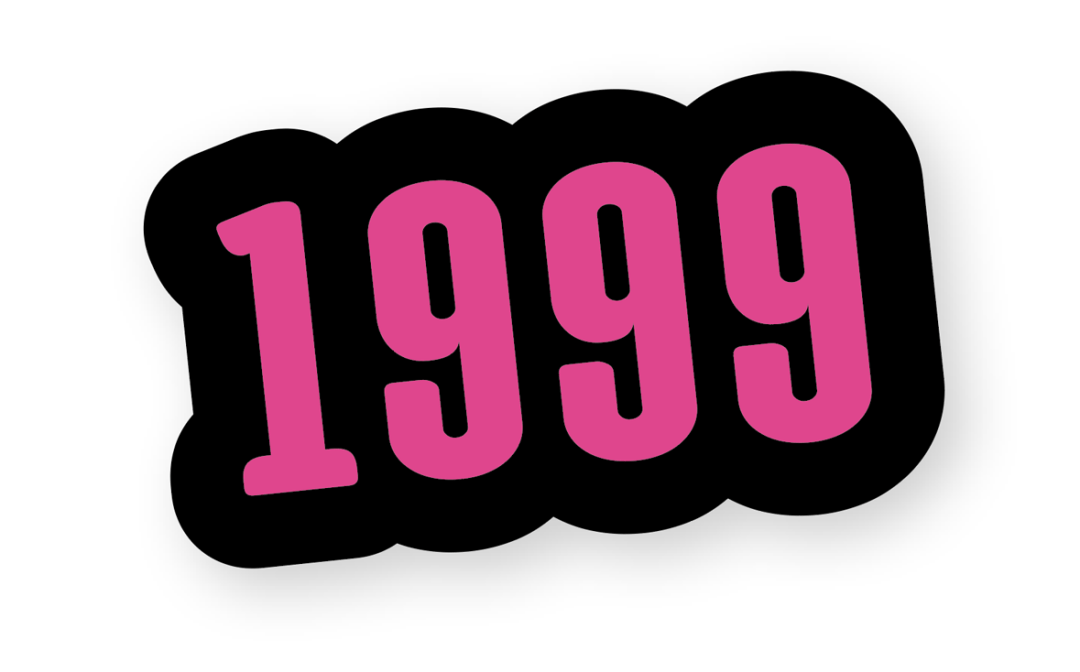
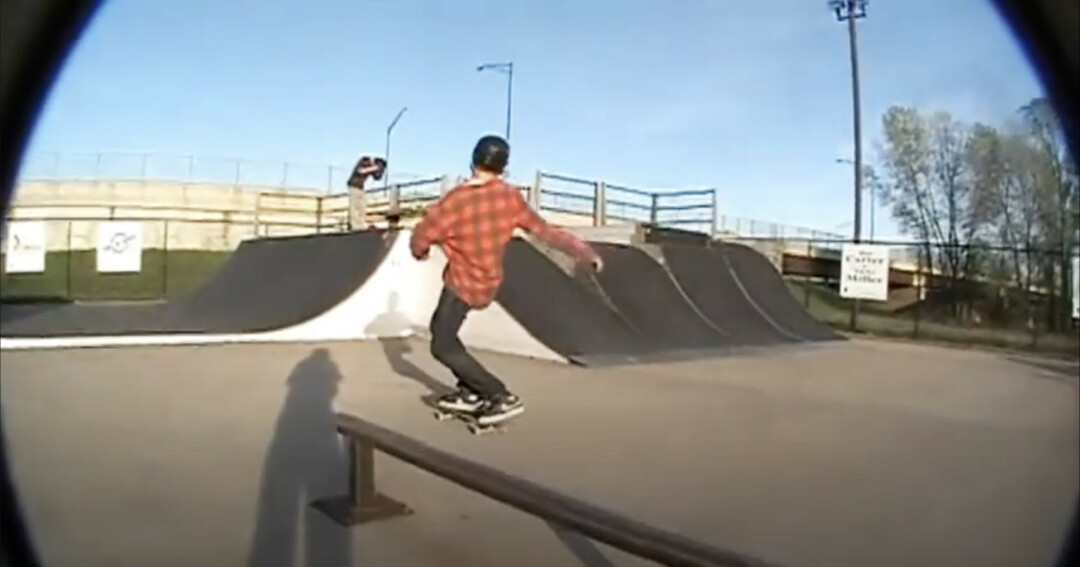
Fast forward to 1999, when construction of the first Eau Claire skate park was officially completed. The YMCA skate park, 299 Moore St., was the first location specifically meant for skaters to safely ride without damaging private or public property in the area. But there were issues almost from the get-go.
In order to ensure the safety of children using the park, the YMCA charged an entrance fee. Their limited hours dissuaded young middle- and high school-aged kids from using the parks at certain times. Its design was flawed, too. It was constructed of prefabricated metal rather than more permanent concrete. After years of use, joints between the skating surface became uneven, creating crevices that tripped up skaters and caused injury.
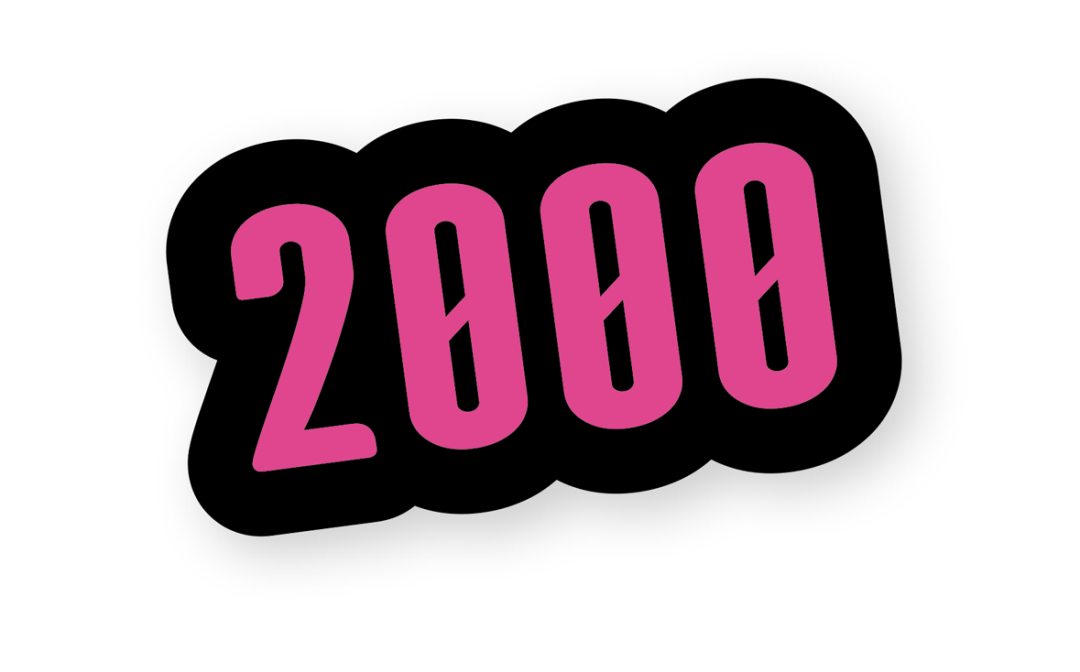 The Chippewa Falls skatepark was a hit when it first opened.
The Chippewa Falls skatepark was a hit when it first opened.
At least, for the kids.
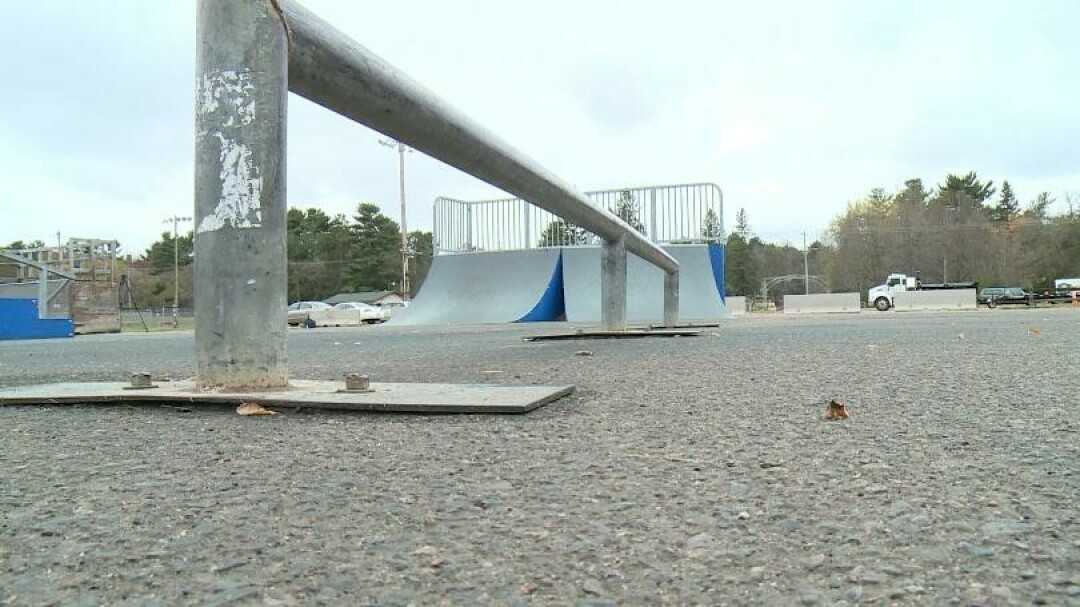
Neighbors often complained of the noise from the skateboarders rolling across the prefabricated metal structures in the skate park, which could be as loud as construction equipment.
Now, the park is rarely used – and for good reason. The pavement is so worn that unless you use a soft skateboarding wheel – which doesn’t make sense for tricks because they catch – you can’t gain speed.
”
“There was just so much opportunity. It was like, wow, man. We got a place for ourselves now, they can’t kick us out of. We can try to do all these tricks. There’s just so much opportunity, or camaraderie, and togetherness.”
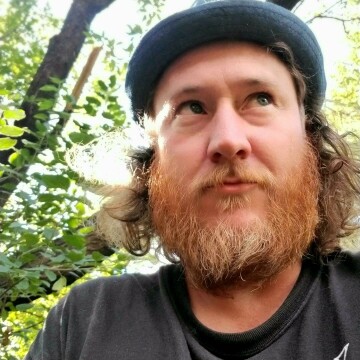
Allen Nelson
Chippewa Falls
“We thought it was sick,” said Chippewa Falls-based skateboarder Allen Nelson. “There was just so much opportunity. It was like, wow, man. We got a place for ourselves now, they can’t kick us out of. We can try to do all these tricks. There’s just so much opportunity, or camaraderie, and togetherness.”
“I’m old now,” he continued, looking at the empty park. “But I mean, look at this place. When you look at it, does it look like a place that a bunch of people are going to want to ride there?”
 Chris Johnson, owner of Passion Board skate shop, has lived in Eau Claire since 1994 and distinctly remembers the impact the local skate shop, Underloud (217 N. Barstow St.), which opened in 2003, had on his childhood.
Chris Johnson, owner of Passion Board skate shop, has lived in Eau Claire since 1994 and distinctly remembers the impact the local skate shop, Underloud (217 N. Barstow St.), which opened in 2003, had on his childhood.
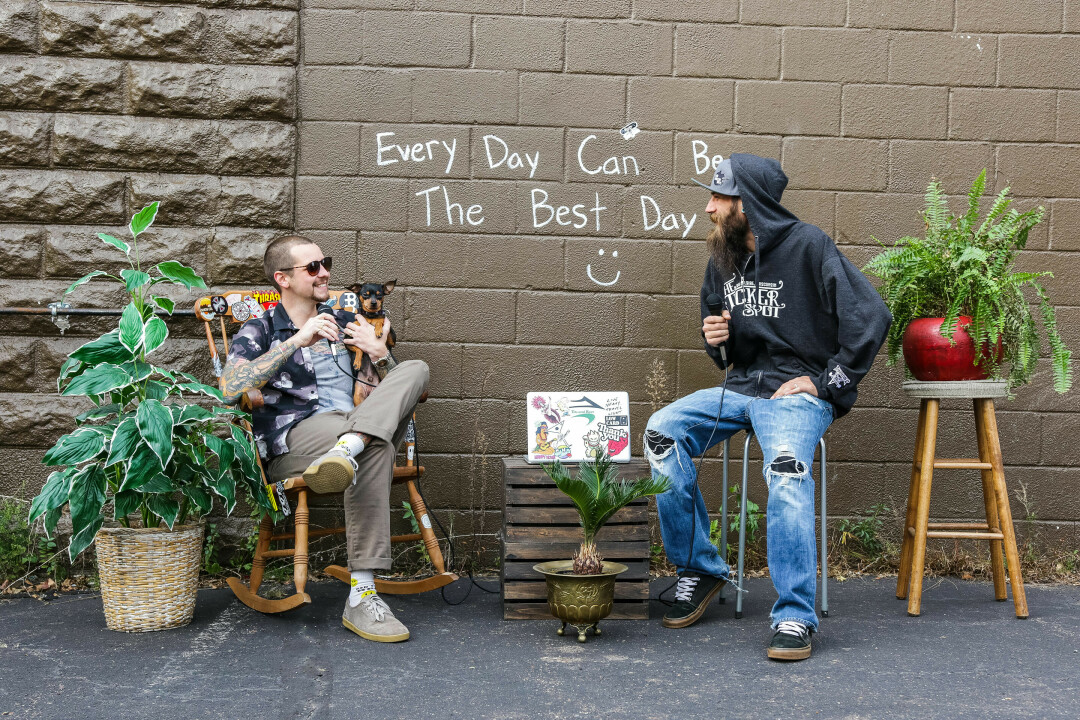
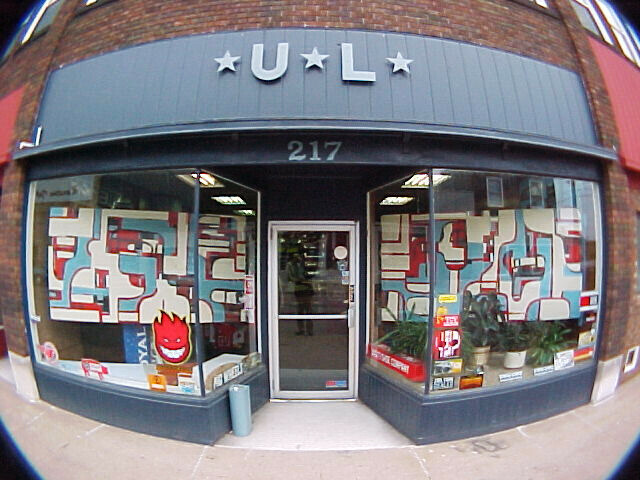
“I would take the city bus downtown instead of taking the bus home,” he said, “and I would skate every day. This was before we all had cell phones. … We would meet down at Underloud – that’s kind of what people still do now. We would go down there, and once we had, I don’t know, three, five, maybe more of us, we would go out to street skating spot to spot until we got kicked out by the cops … because skateboarding is illegal.”


In Issue #286, published in October 2008, the Chippewa Falls skate park was named one of Thrasher magazine’s “Not Spots” – a list of the worst skateparks in the U.S.
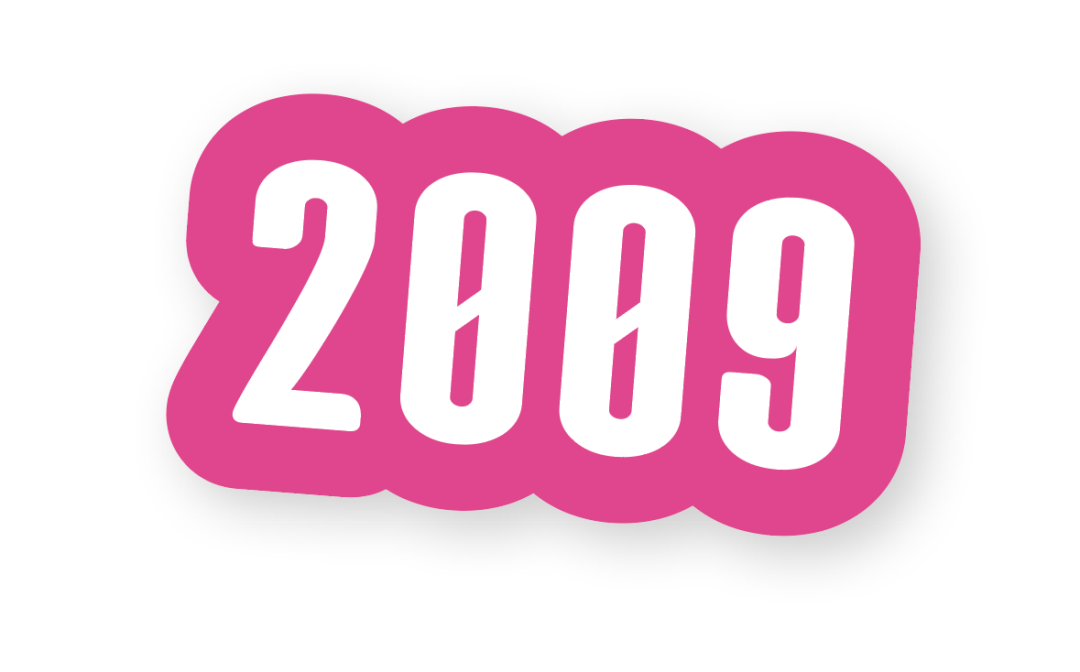 When Eau Claire Skaters Association founder Gabe Brummett first moved to Eau Claire, he found Eau Claire’s only indie skate shop, Underloud, was closed – everything packed in boxes. Similarly, there was no public skate park.
When Eau Claire Skaters Association founder Gabe Brummett first moved to Eau Claire, he found Eau Claire’s only indie skate shop, Underloud, was closed – everything packed in boxes. Similarly, there was no public skate park.
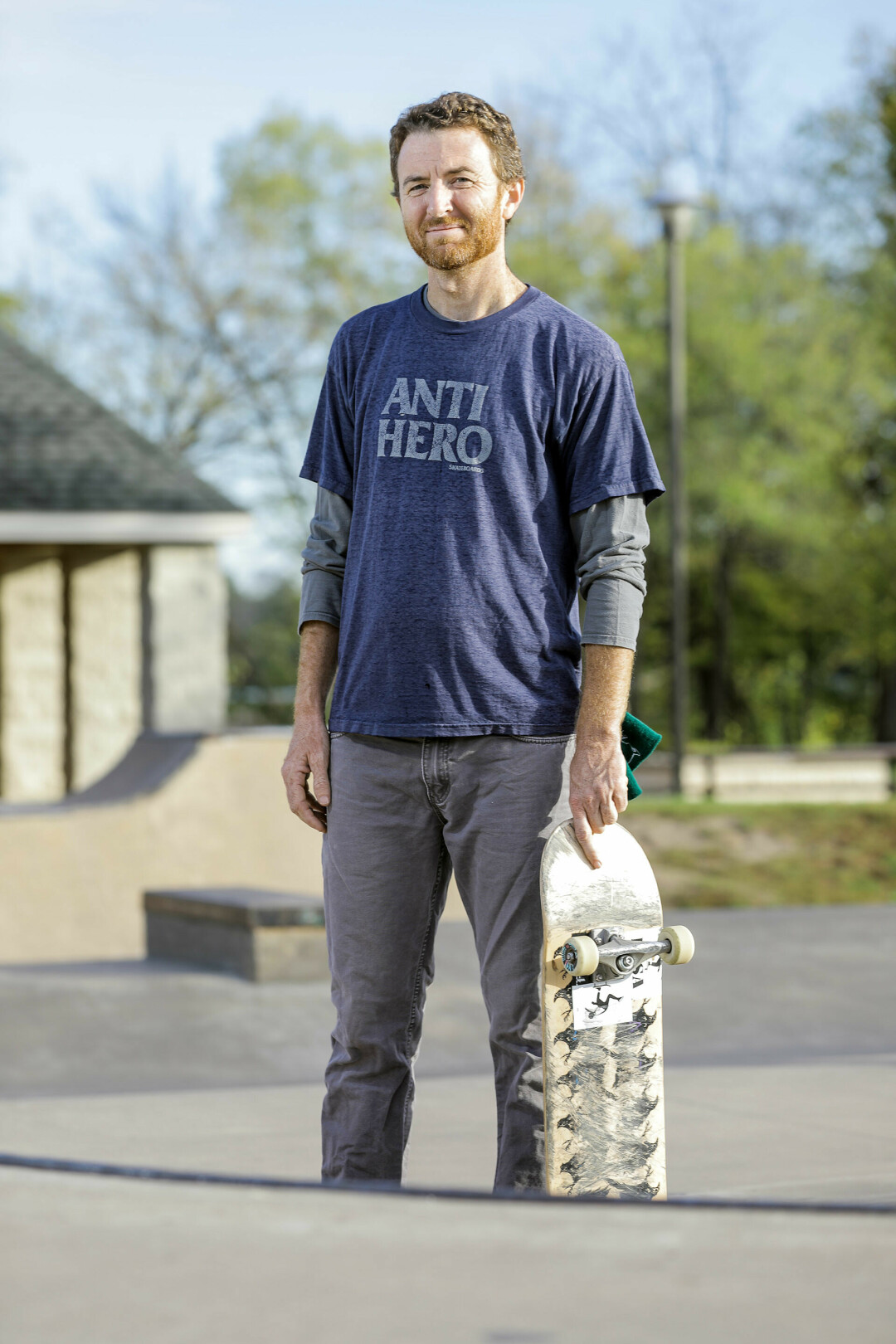
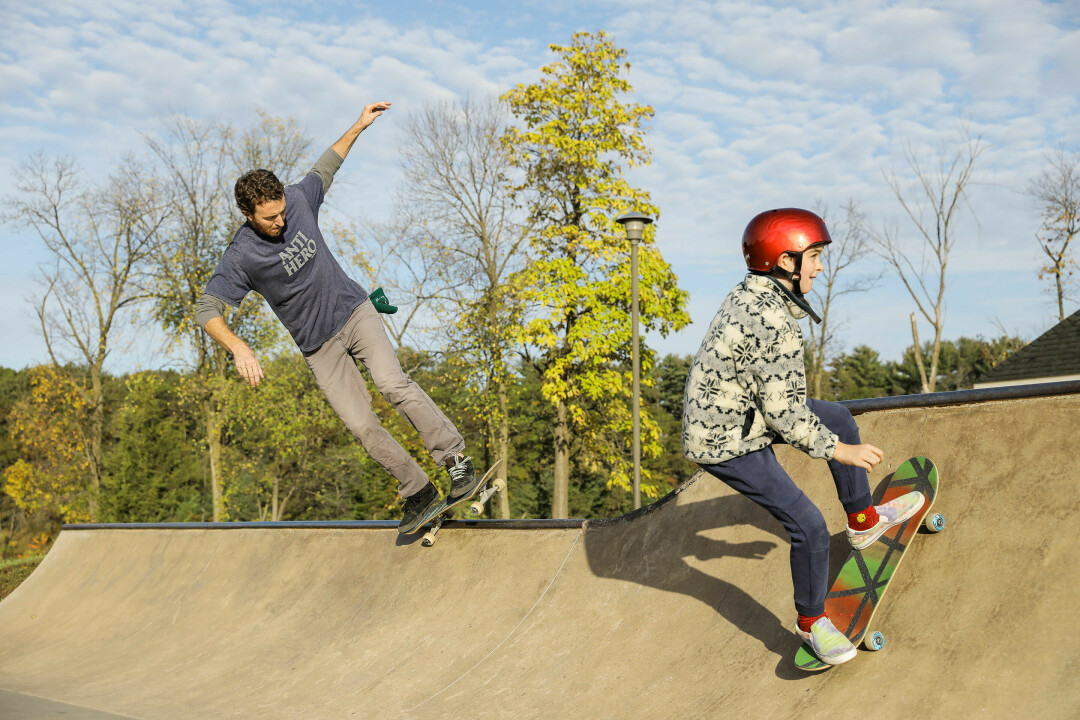
“I had never lived in a town where there was no skate park, so I immediately went to Parks and Rec and was like, ‘What can we do here?’ ” Brummett said. “The community of skateboarding got me through my early years. And I want that for youth in this community.”
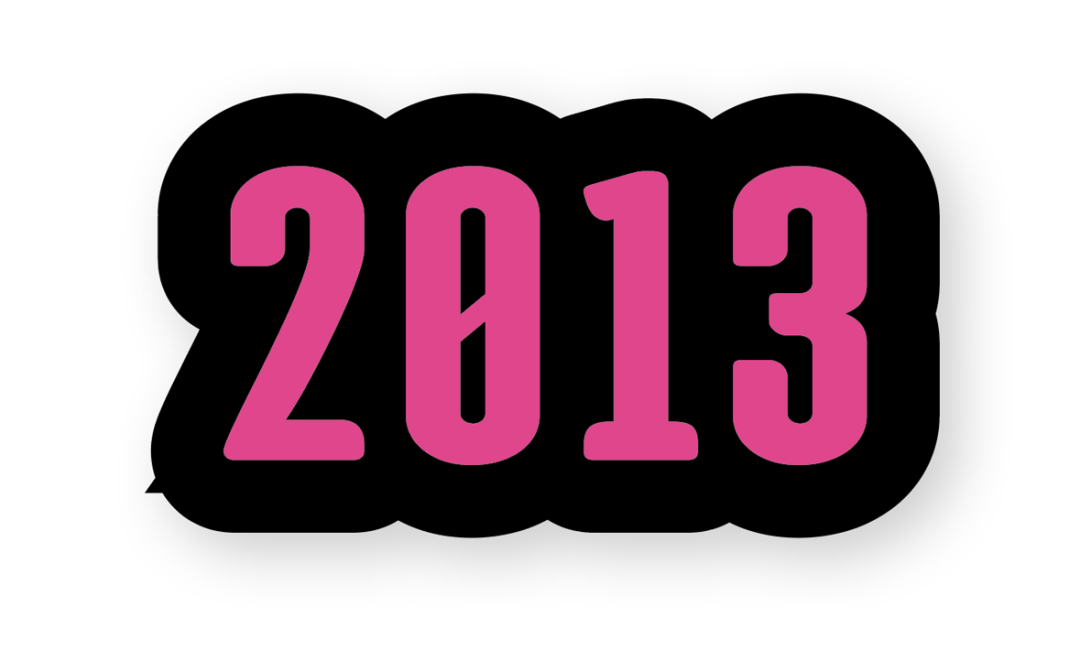 Lakeshore skate park was constructed in July 2013 after years of fundraising efforts, thanks to the Eau Claire Skaters Association. The City Council contributed $55,000 for the modest, 2,400 square-foot project, with skaters chipping in what they could.
Lakeshore skate park was constructed in July 2013 after years of fundraising efforts, thanks to the Eau Claire Skaters Association. The City Council contributed $55,000 for the modest, 2,400 square-foot project, with skaters chipping in what they could.
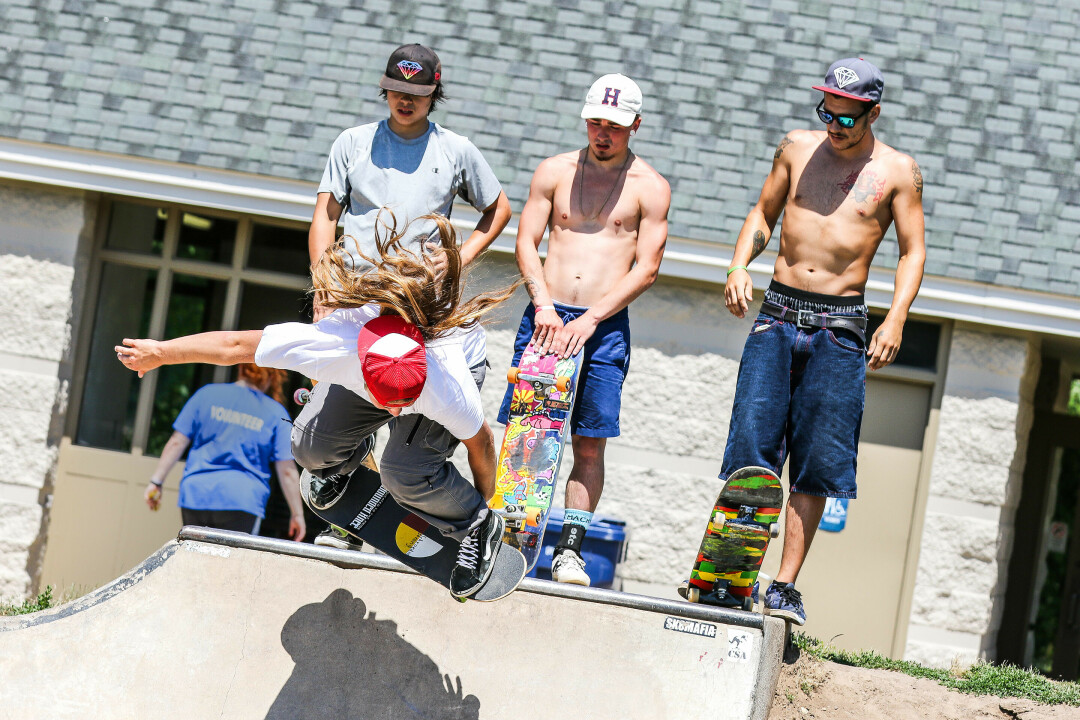
According to Adam Eichorn, lead of skatepark development for Spohn Ranch – the developer for Eau Claire’s new skate park – Lakeshore is classified as a skate spot, not a skate park: Essentially, it is too small to be defined as a park. Many cities incorporate skate spots surrounding a larger park to create a more robust skateboarding community.
“I don’t want to say anything bad about Lakeshore,” Eichorn said, “but it is small, and it is extremely limited in what you can do.”
“I don't want to say anything bad about Lakeshore, but it is small, and it is extremely limited in what you can do.”
Adam Eichorn
lead of skatepark development for Spohn Ranch, who will build the new Eau Claire skate park
Though local skaters celebrated the new park, they were also quick to criticize it.
“It’s a really condensed space, and it skates pretty fast,” said Neil Miller, a UW-Eau Claire graduate who skated at the Eau Claire park throughout college. “And so one of the first things I noticed was that it was really difficult for the younger skaters to take that headspace that, OK, it’s my turn.”
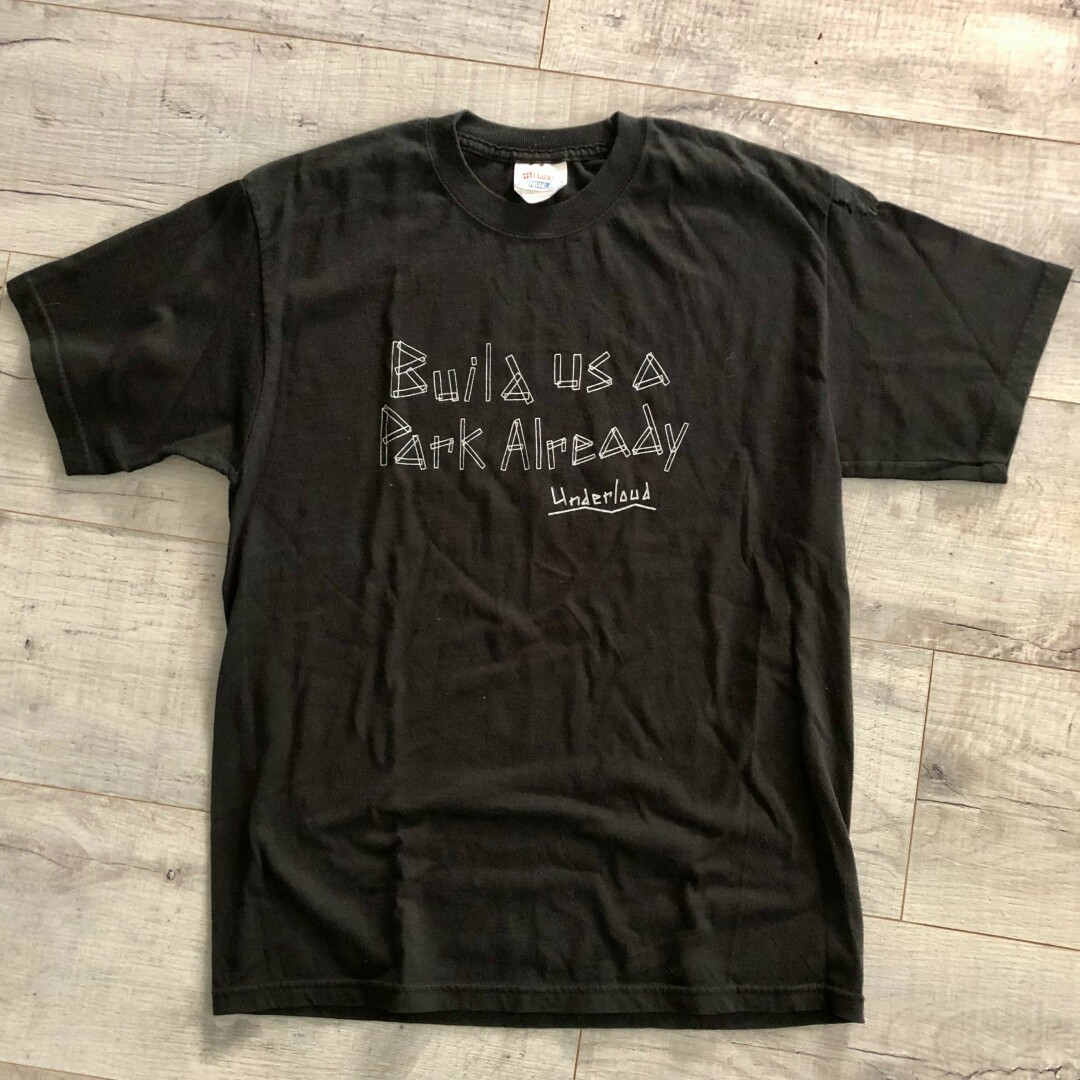
So, the Eau Claire Skaters Association pivoted to begin fundraising for another park. Perhaps an omen of bad luck, it was only a few months after the Lakeshore skate park opened that the YMCA’s skate park closed.
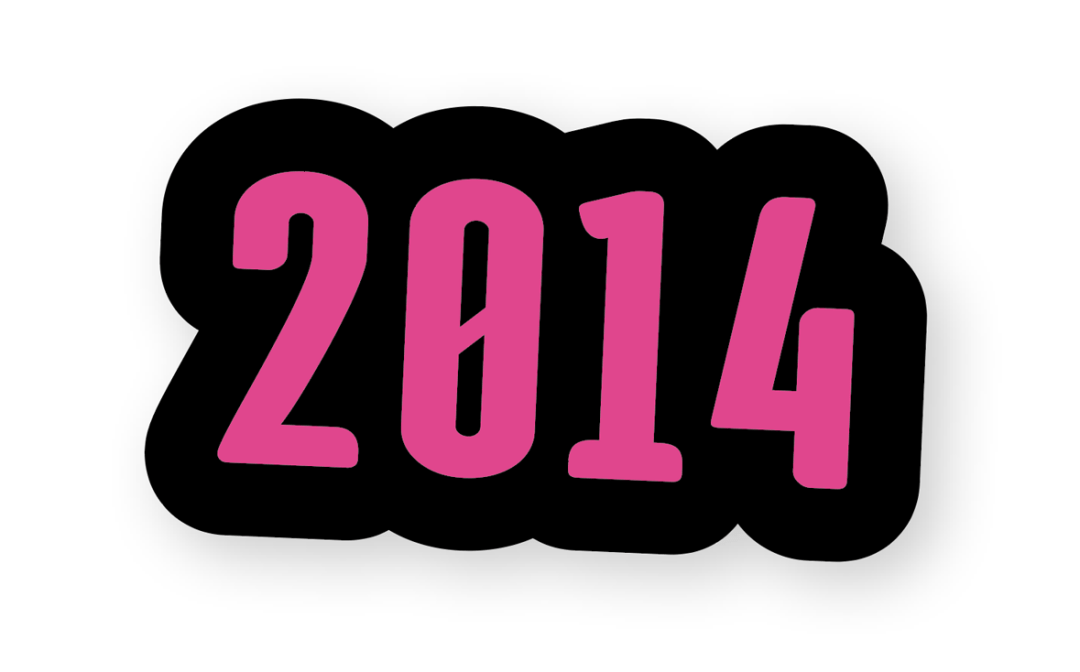 To have a successful skateboarding scene, a community needs three things: a skate park, a skateboarding community, and a skate shop.
To have a successful skateboarding scene, a community needs three things: a skate park, a skateboarding community, and a skate shop.
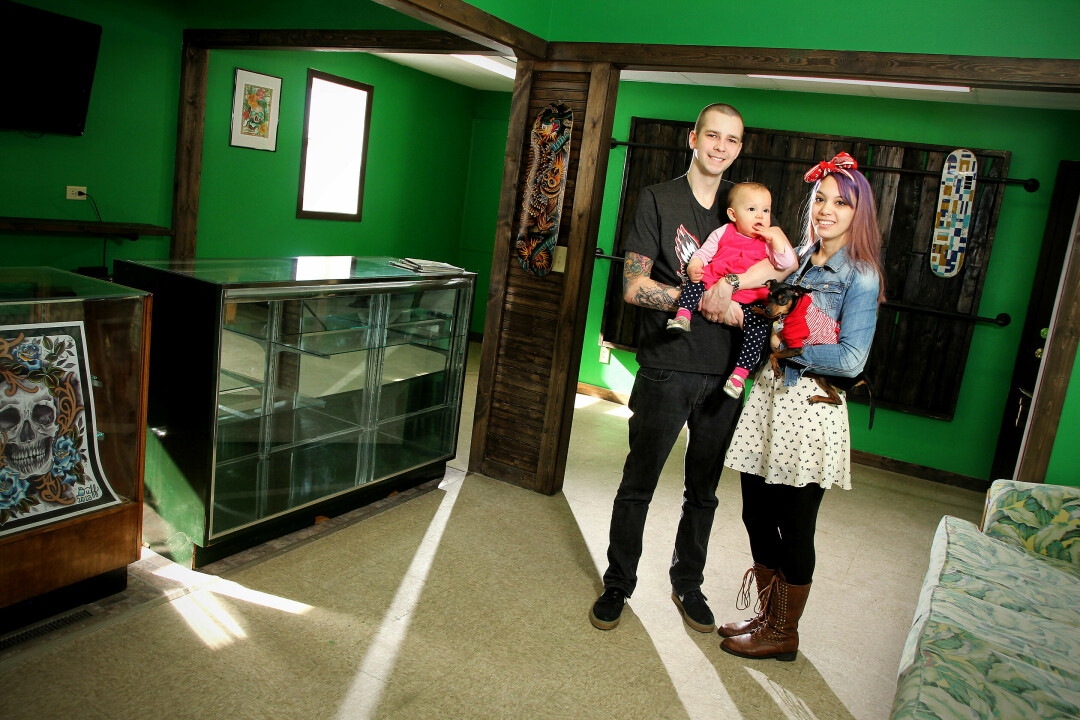
Fearful that the loss of Underloud as well as the YMCA’s skate park might dwindle the local scene, Chris Johnson knew he needed to do something. After considering his life, his passions, and what he wanted his legacy in life to be, he threw caution to the wind, took out $8,300 of credit card debt (as he was unable to obtain a bank loan), and signed a lease for Passion Board skate shop in January 2014.
On the shop’s opening day in April, well over 100 people stopped by, and he sold over half of his merchandise in a single day.
“People were wanting a skateboard shop,” he said. “It didn’t even need to be me. It could have been anybody, any other member of the skateboarding community, and we all would have been there. It’s this really tight-knit community. It’s kind of us against the world in a certain way. Not that we want to have a chip on our shoulders in that way, but the community has underserved us for such an extended period of time, and all of us, our parents told us to stop skateboarding, all of us, our teachers told us it was a joke. We are all protective of each other and want to help each other.”
PRO SKATEBOARDERS PAVE THE WAY FOR MORE DIVERSITY IN THE SKATE SCENE – BOTH LOCALLY AND NATIONALLY
As the Eau Claire skate scene blossomed, media attention across the country shifted its focus to the increasing diversity in the skateboarding scene. In 2016, Vice published the deeply personal profile of professional skateboarder Brian Anderson, who came out that year as gay.
Anderson was one of the first professional skateboarders to come out, marking a significant step toward representation in the skateboarding scene. Local skaters felt more compelled to come out as LGBTQ+, and individuals who already identified as LGBTQ+ felt more invited to skateboard too, according to local skaters.
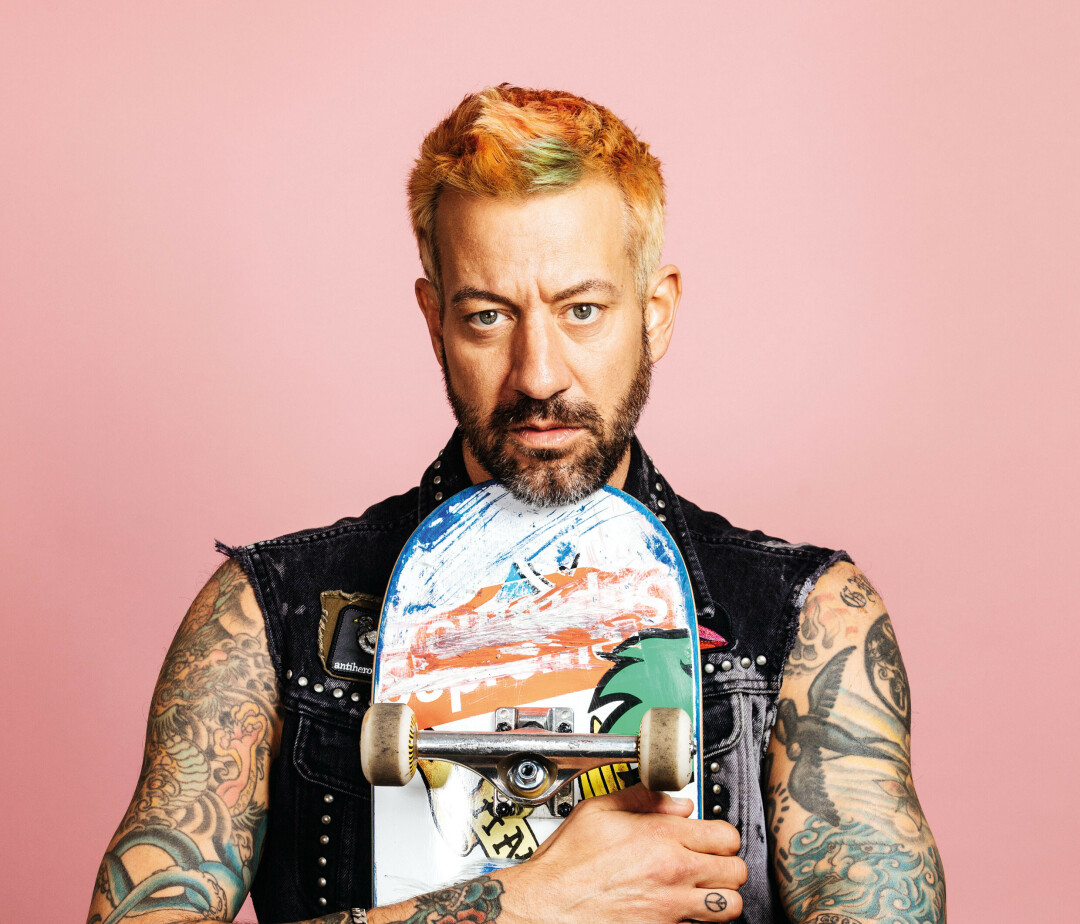 Brian Anderson, a nationally recognized skateboarder, came out as gay and was featured in a 2016 Vice feature story. Local skateboarders say this inspired them to likewise come out as gay, or feel invited to be a part of the skateboarding scene. (Photo via Skateism)
Brian Anderson, a nationally recognized skateboarder, came out as gay and was featured in a 2016 Vice feature story. Local skateboarders say this inspired them to likewise come out as gay, or feel invited to be a part of the skateboarding scene. (Photo via Skateism)The same year, in winter of 2016, Urban Roots Skate Park opened in Eau Claire, using parts from the YMCA Skate Park to create an indoor park at 3523 Delbert Road in Eau Claire – thanks to the combined effort of countless local skaters. Unfortunately, the endeavor wasn't sustainable, as the park closed shortly thereafter. Though, many skaters now have a renewed passion for creating a more sustainable indoor park.
“It’s really hard to improve," said local skater Dani Lehto, who went on to create the new UW-Eau Claire Sk8 Club this past fall, "especially because it’s like a muscle memory-based thing. Of course, you’re still probably going to be able to land a trick that you could in the fall once everything is thawed out in the spring, but your improvement is not there. You’re back to (square) one on that. … It’s so cold, it’s just not practical to keep training in the winter.”
“As girls and women, we’re seeing the world in a new light.”
In 2021, the summer Olympics included skateboarding as a competitive sport for the first time. It has inspired more women locally to try out skateboarding.
“As girls and women, we’re seeing the world in a new light,” said Eau Claire native Sarah Burgess, who now works with Skaters for Portland Skate Parks. “Of course, we’ve always been told that we can do anything we want to … but I think girls are (also) told to be small … and girls can’t be small if they want to skateboard.”
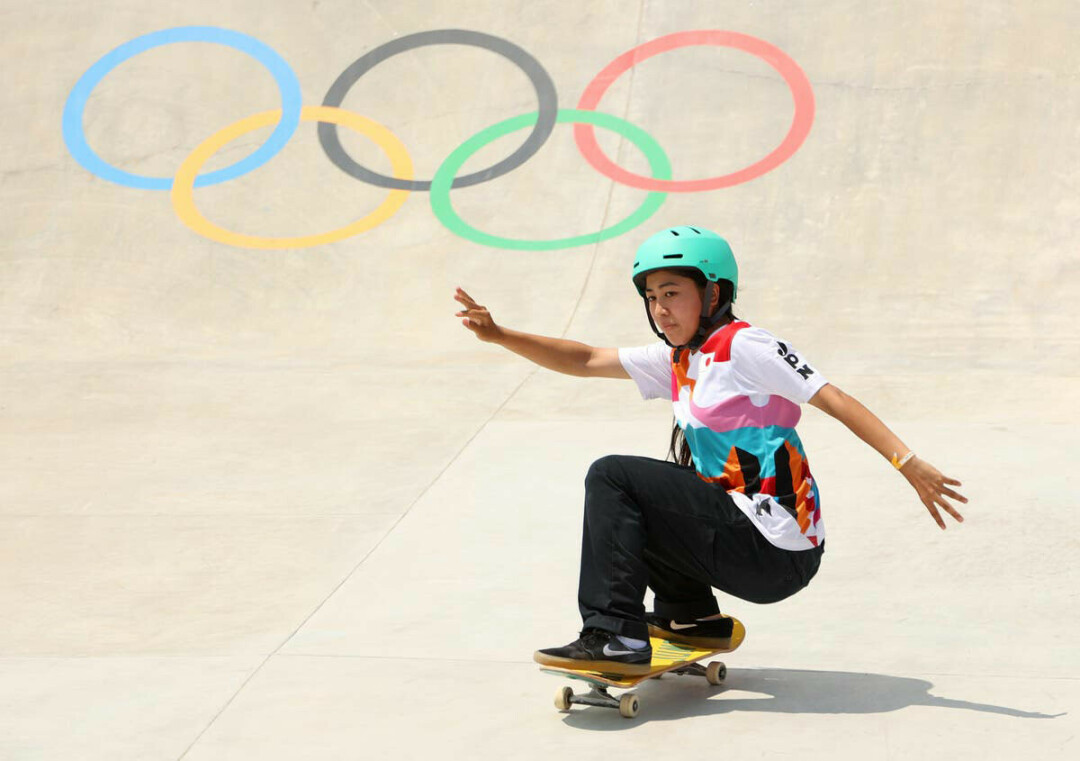 Gold Medal winner Momiji Nishiya of Japan at the Tokyo Olympics in summer 2020. She was 13 years old at the time. (Photo via The Independent)
Gold Medal winner Momiji Nishiya of Japan at the Tokyo Olympics in summer 2020. She was 13 years old at the time. (Photo via The Independent)
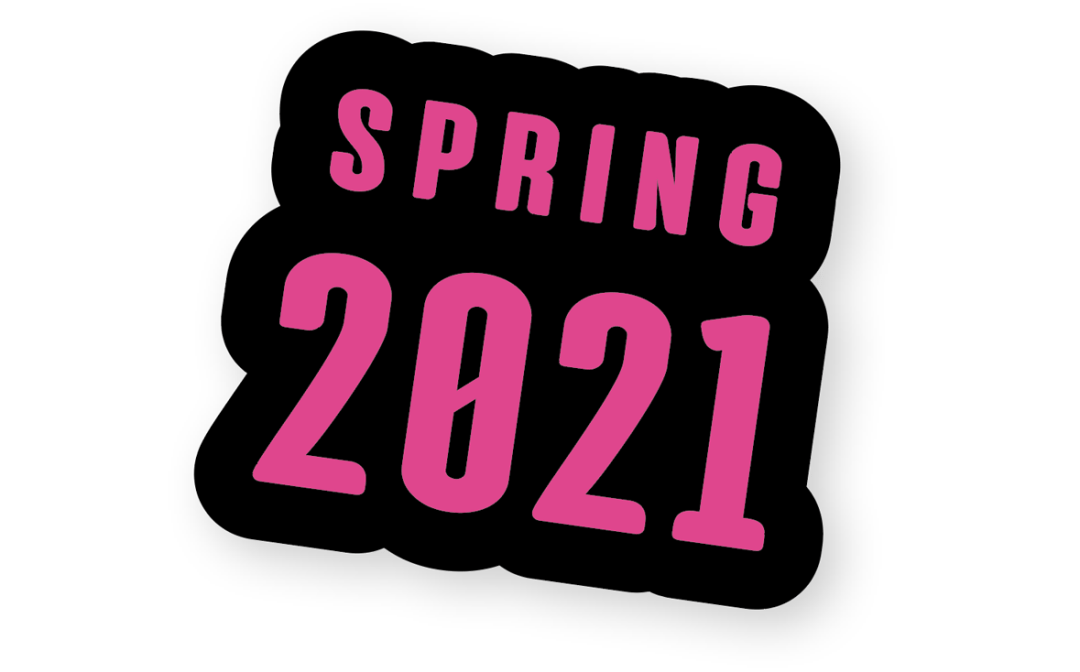 Sara Hendrickson began the COVID-19 pandemic quarantine period like most: by exploring a new hobby. Alongside her 10-year-old daughter, the DeLong Middle School health teacher began skateboarding – something she had always been fascinated by, but never had the confidence to give it a shot.
Sara Hendrickson began the COVID-19 pandemic quarantine period like most: by exploring a new hobby. Alongside her 10-year-old daughter, the DeLong Middle School health teacher began skateboarding – something she had always been fascinated by, but never had the confidence to give it a shot.
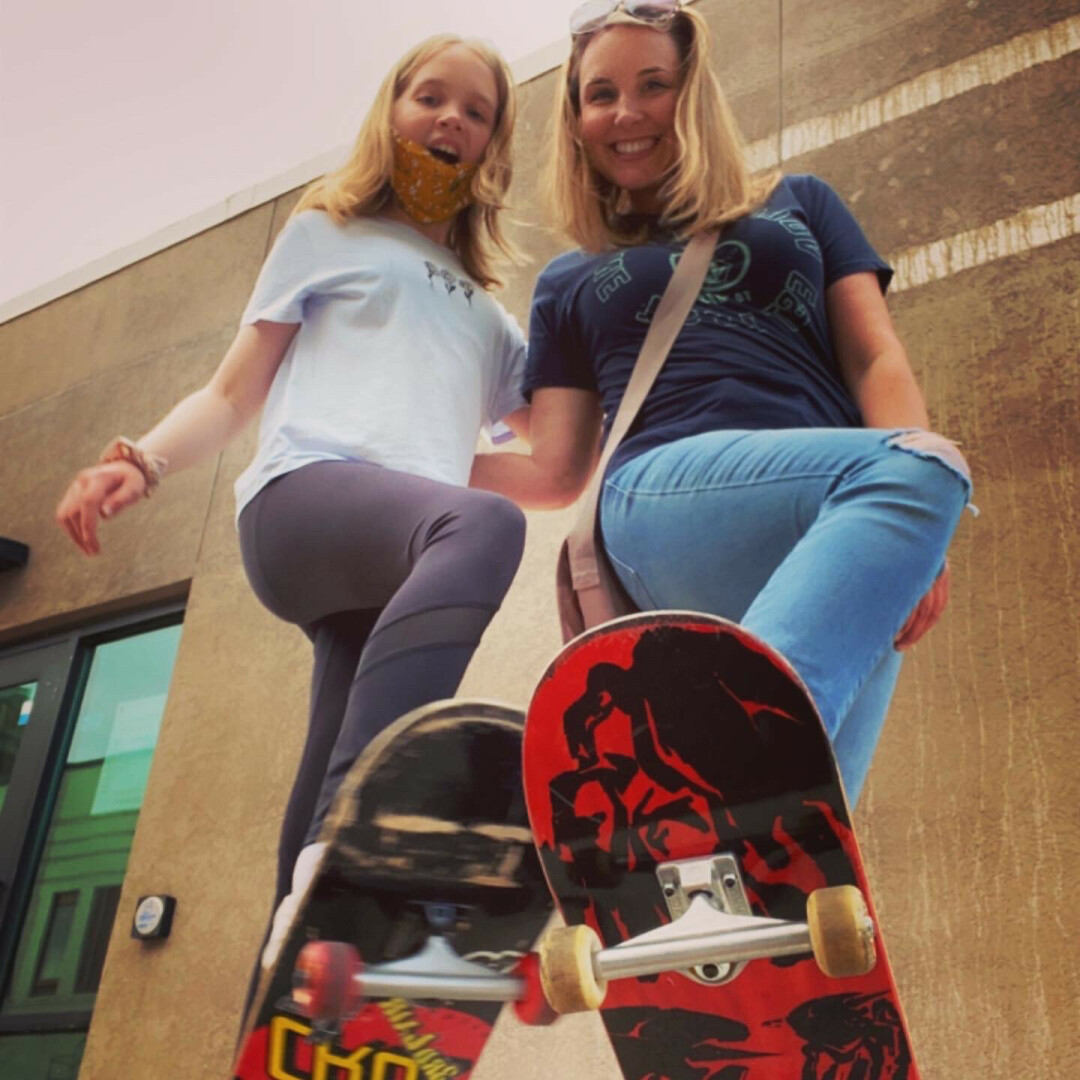
“It’s not something I thought was okay for an adult woman to start doing,” she admitted. “Like, I felt like a total dork the first few times. I just didn’t fit the stereotype and was self-conscious about the image it would exude. I guess I kind of had a revelation in the last couple years that we only live once, and if I want to learn something new, I should do it while I still can.”
“We only live once, and if I want to learn something new, I should do it while I still can.”
Sara Hendrickson
founder of DeLong Skate Club
After welcoming students back to school for only four days a week, she recognized the need for social interaction and decided to start the DeLong Skate Club. About 20 students – children of all different backgrounds and identities in sixth through eighth grade – joined the club.

“Coming off a year of isolation, I felt that all kids needed an opportunity to do something they enjoy,” she said, “and sometimes this group doesn’t find that within the confines of traditional school sports or offerings.”
Hendrickson noted that, during the same timeframe, she noticed more women and LGBTQ+ students getting involved in the scene.
And it’s a trend that goes beyond middle school.
“I definitely see a lot more gay skaters, myself included, which is a great thing,” said Ilka Malin, a student skateboarder at UW-Eau Claire. “Skateboarding used to be very masculine, and now I watch pro-trans skaters. And it’s just very cool to see more representation of yourself and your friends. … Other people who think they might not have been able to skate now want to go try. It’s cooler. More accepting.”
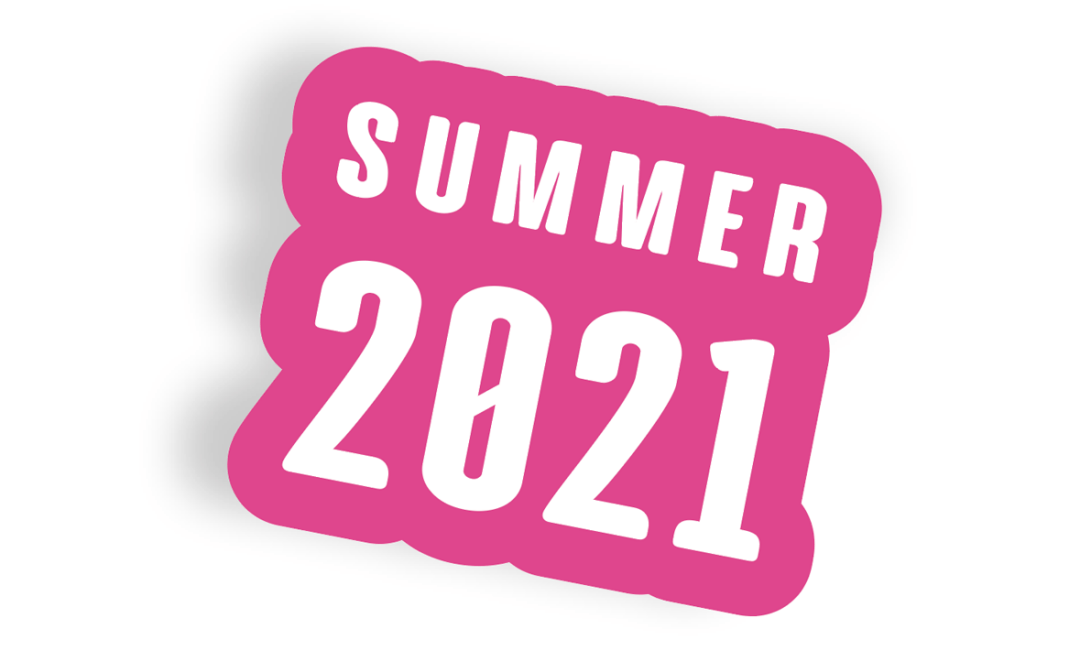
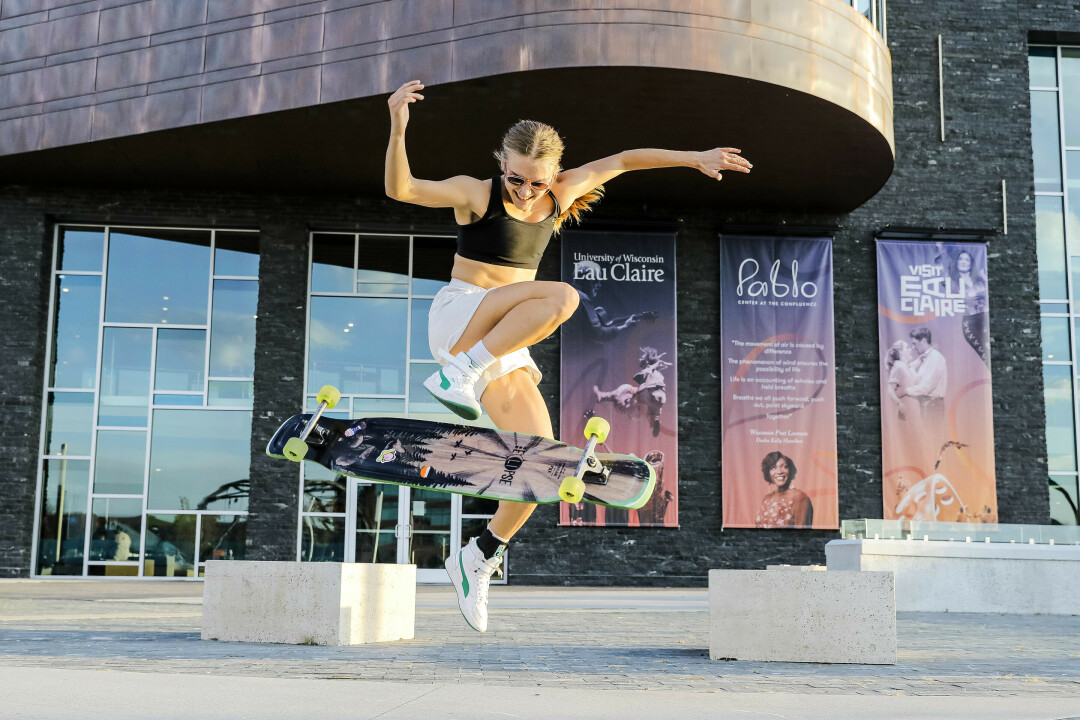
This past September, UW-Eau Claire chemistry student Dani Lehto started the campus’ new skate club, called simply Sk8 Club. In the first week of the club’s existence, it saw interest from hundreds of students. Now, more than 70 students are part of the club.

“I was so pleasantly surprised when the skaters that knew what they were doing ... were helping people who had never skated before on their own boards,” Lehto said. “They were teaching people without me even having to ask them to do this. They just started doing it. It was exactly this idea that I had in my mind that there would be this place where people would come and try this thing, and people are going to be helpful and nice and encouraging, and it totally became that, and it’s super crazy.”
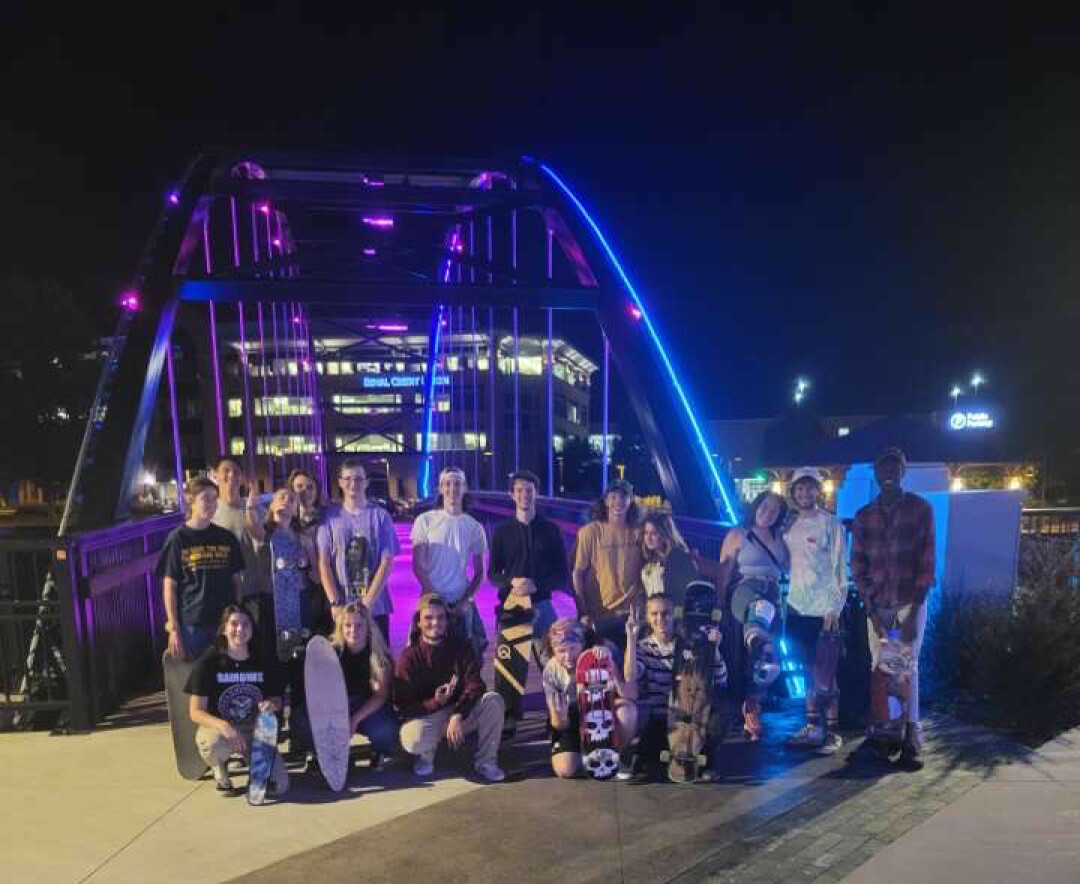
Lehto, a Brookfield native who identifies as part of the LGBTQ+ community, started skating because she thought it was cool. But she was often excluded from skateboarding circles.
“Especially being a girl and everything,” she said. “I didn’t get ‘in’ with the skater kids. And, of course, I could have powered through and probably made myself fit in, but at the time, it’s not easy when you’re a kid, when you’re a teenager, navigating social things like that. … I could only imagine that a community of people could be kind in that way and supportive in that way.”
The Future
Chippewa Falls and Menomonie both have skate parks that are more than two and three times the size of Eau Claire’s respectively, with less than a quarter of the population.

And while Eau Claire has significantly invested in its parks and trail systems overall – as well as facilities for soccer, hockey, and other sports – investment in skateboarding and its creative culture has lagged well behind.
And some local skate advocates think they know why.
“The problem is, skateboarding has primarily been a poor kid’s sport for forever,” said Passion Board Shop owner Chris Johnson. “Since you don’t have wealthier, influential parents involved, then things don’t get done. … The people who have influence, their ideas, and the things they want, are the things that happen.”
However, in 2015 the Eau Claire Comprehensive Plan for the city’s parks and trail system did identify that the community should create “several small concrete plazas of 2,000 to 4,000 square feet in various parts of the city for skateparks.”
While those sized spaces aren’t the singular full-featured park many advocates would like to see, they’d certainly be a step in the right direction. Yet since the skate spot at Lakeshore Park opened in 2013 with 2,400 square feet – two years before the Comprehensive Plan – no additional skate plazas have been added.
A COLLABORATIVE OPPORTUNITY
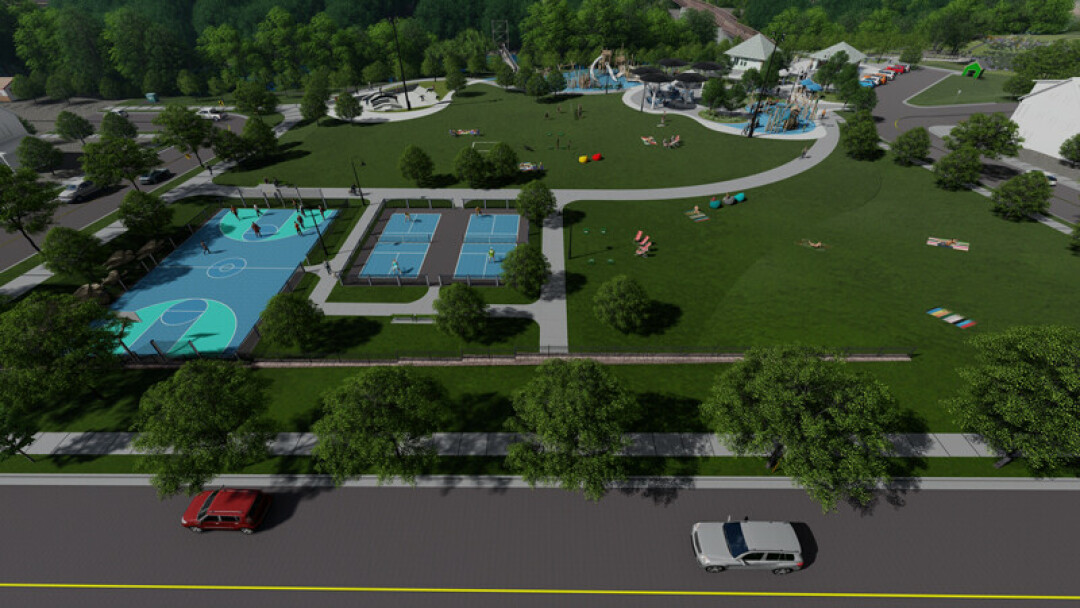
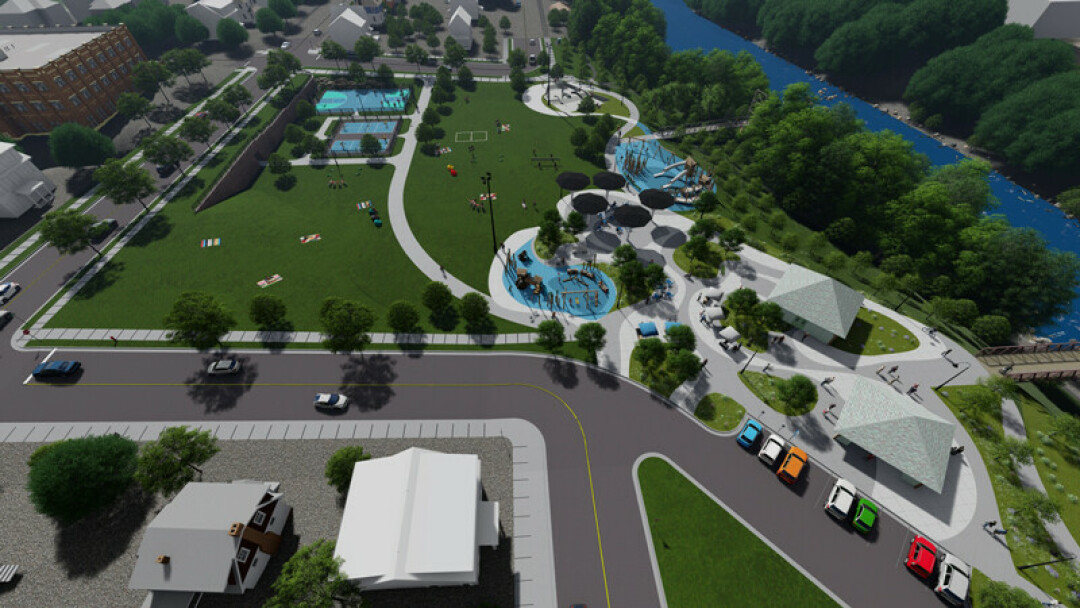
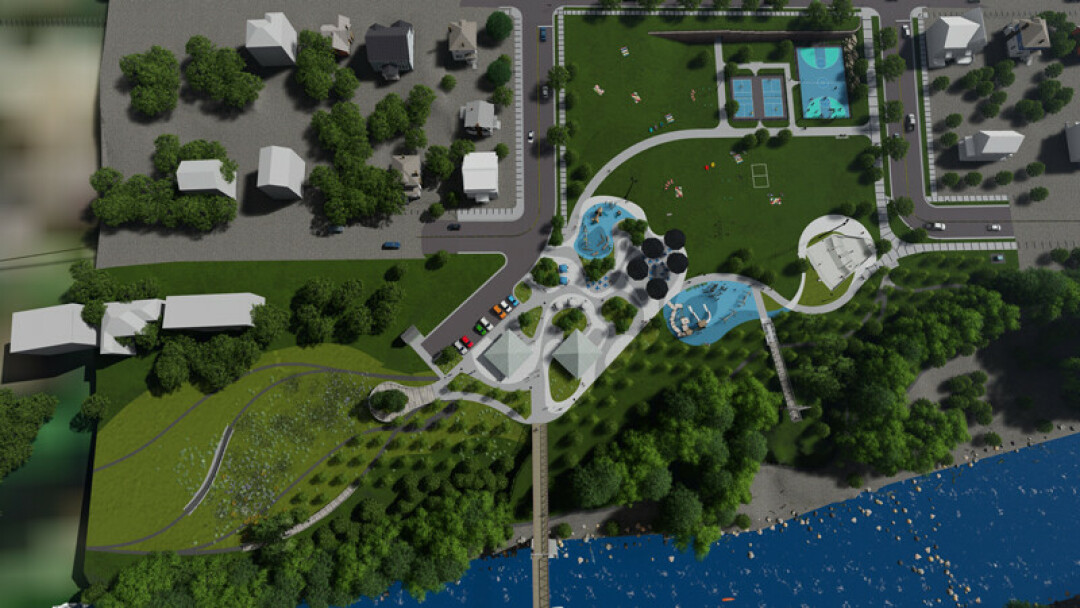

With momentum in the skateboarding community picking up speed, a logical next step would be to build the larger skate park that the Eau Claire Skaters Association has been working toward for a number of years. Led by Gabe Brummett, the ECSA has worked with the Eastside Hill Neighborhood Association to put a new skate park into the plans for the new Boyd Park Plus project along Main Street. And it would seem its moment has arrived.
The broader park’s plans propose maintaining Boyd Park’s ice skating rink, but adding two new playgrounds, community gardens, sport courts, improved river access and event space, and more. Along with those amenities, they’ve allocated roughly 5,000 square feet for skate space. While that’s more than twice the size of what’s currently at Lakeshore, it’s still quite undersized when stacked against comparable communities. Larger versions have been floated, even with potential support from city leadership, but they eat up limited space that’s been set aside for other parts of the park. Plus, larger versions cost more.
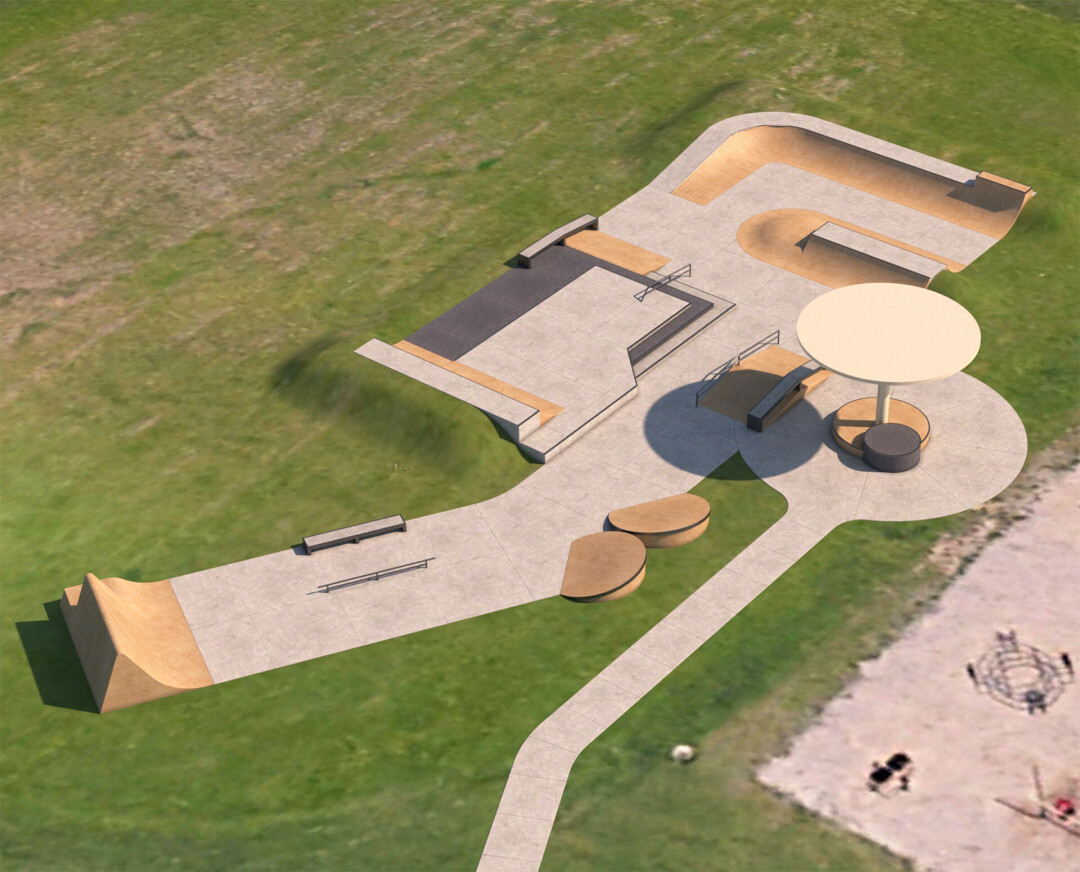
The current skate park proposal would take $275,000 to build. As of today, the Skaters Association has raised $65,000 to put toward the park from individuals, businesses, and grants. At least $10,000 of that has come from young skaters themselves through old-school grassroots efforts like raffles and change jars. According to Brummett, one kid even invited a bunch of friends to his birthday party and instead of asking for gifts, asked for them to bring cash for the skate park. He ended up donating nearly $600.
With this kind of enthusiasm around the sport, in addition to regular daily use, Brummett hopes to use the new space for after school skate clubs, lessons, and summer day camps.
THE COMMUNITY INVESTMENT
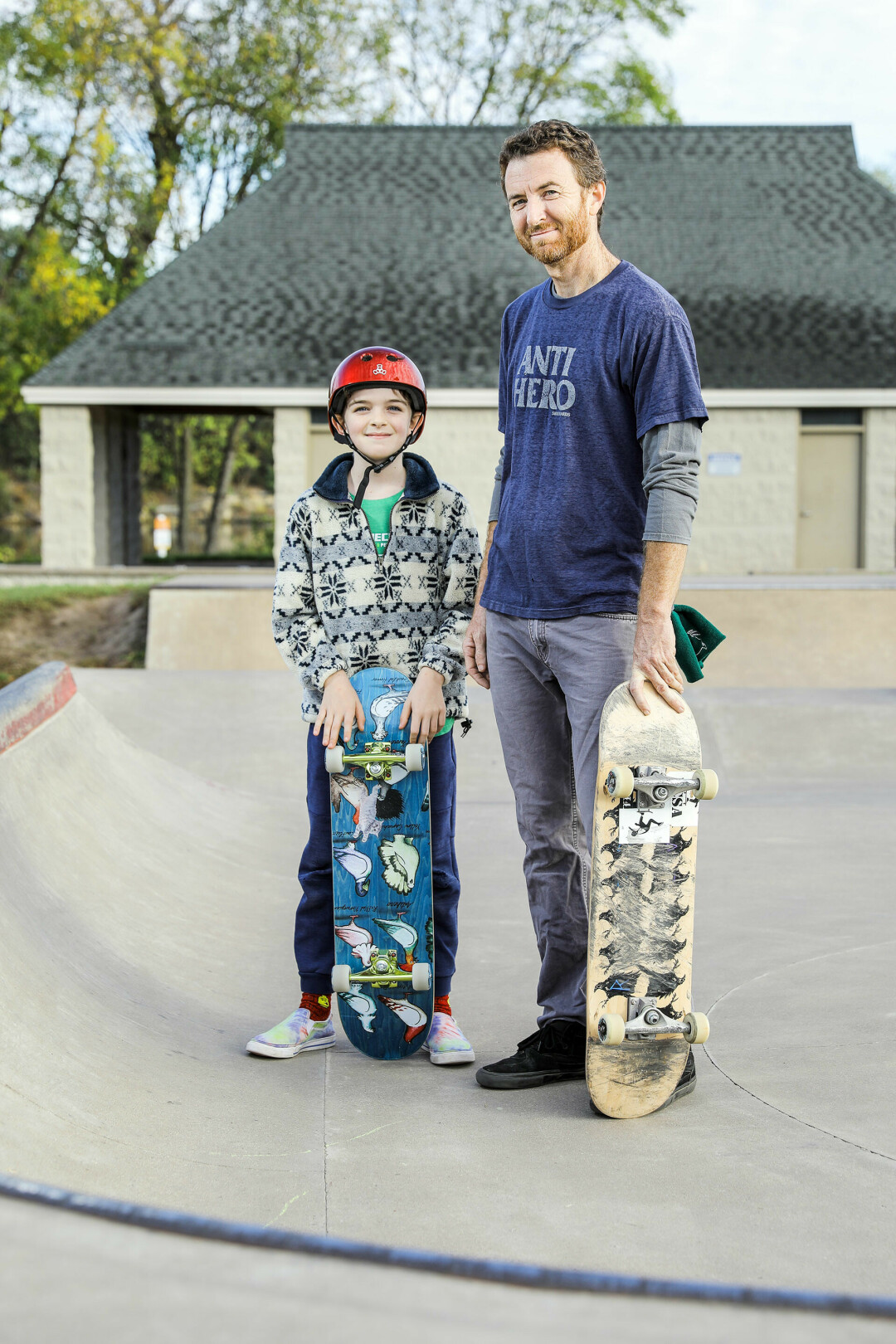
While the ECSA plans to raise another $10k to reach $75,000 total, on Nov. 9 they also plan to ask City Council to allocate $200,000 out of the upcoming five-year capital improvement plan.
Other funding methods could include the new federal Neighborhood Investment Fund Grant, which offers $200 million for communities to help deliver “innovative public services, including new or improved facilities.”
Founding could also come from Eau Claire’s new “participatory budgeting” process, which allocates $300,000 in 2022 for any projects that citizens can pitch are needed for the community. Citizens then vote on the projects that will receive funding.
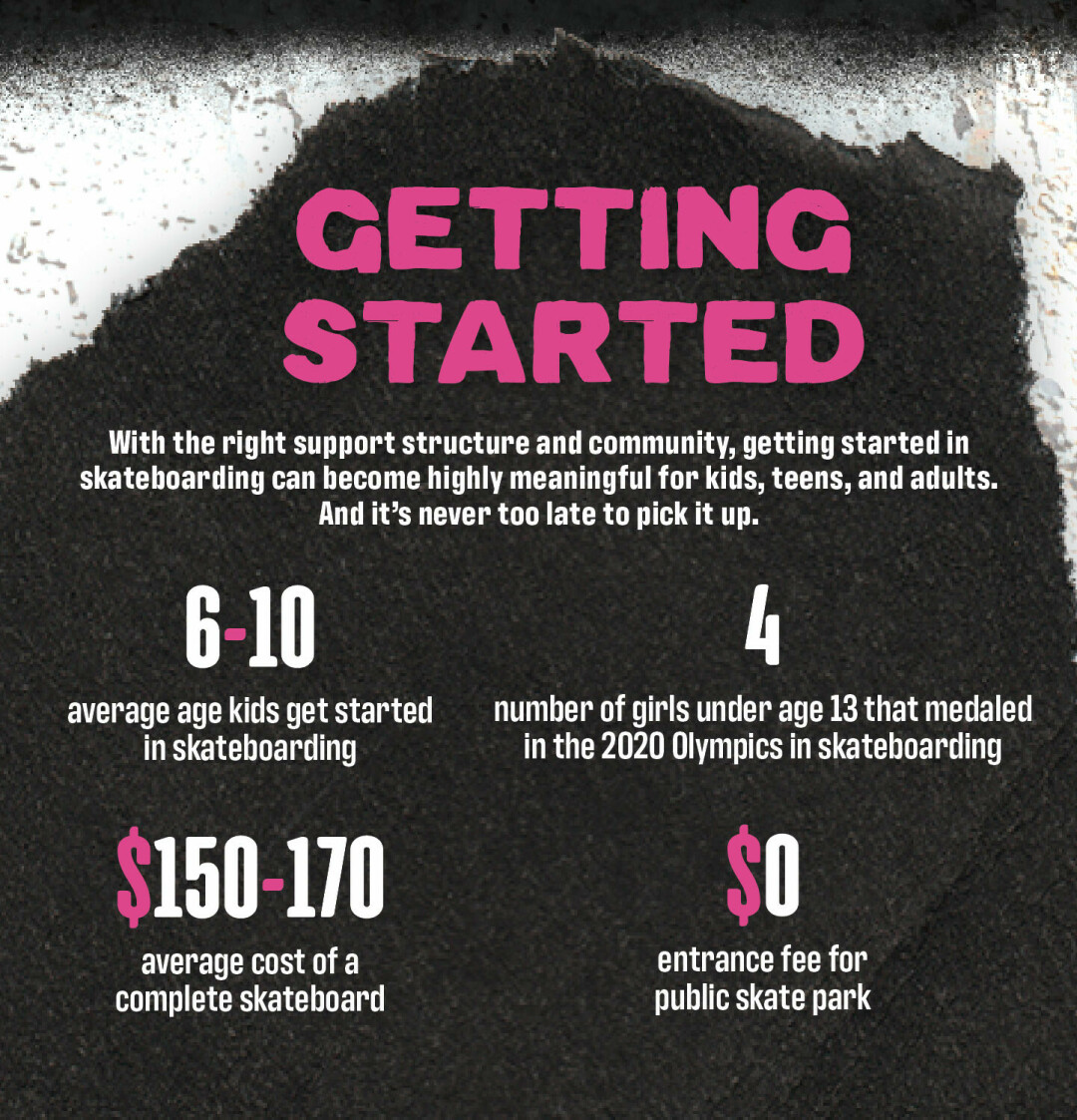
Through working with the City on the project, Brummett indicates he feels there’s City Council support. But more than just that, he feels that the growth of the sport – in terms of visibility, diversity, and more – means that there’s growing community support, as individuals and families from all backgrounds are taking part in skating, like he does with his 9-year-old son, Burley.
“Skateboarding is a great equalizer. It’s been like that since I was a kid and it’s even more like that now,” he said. “When you show up at the skatepark, it doesn’t matter if you’re rich or poor, (or whatever your gender is). As long as you’re there to have fun, regardless of skill level, people are there to support you.”
MORE WAYS TO SKATE
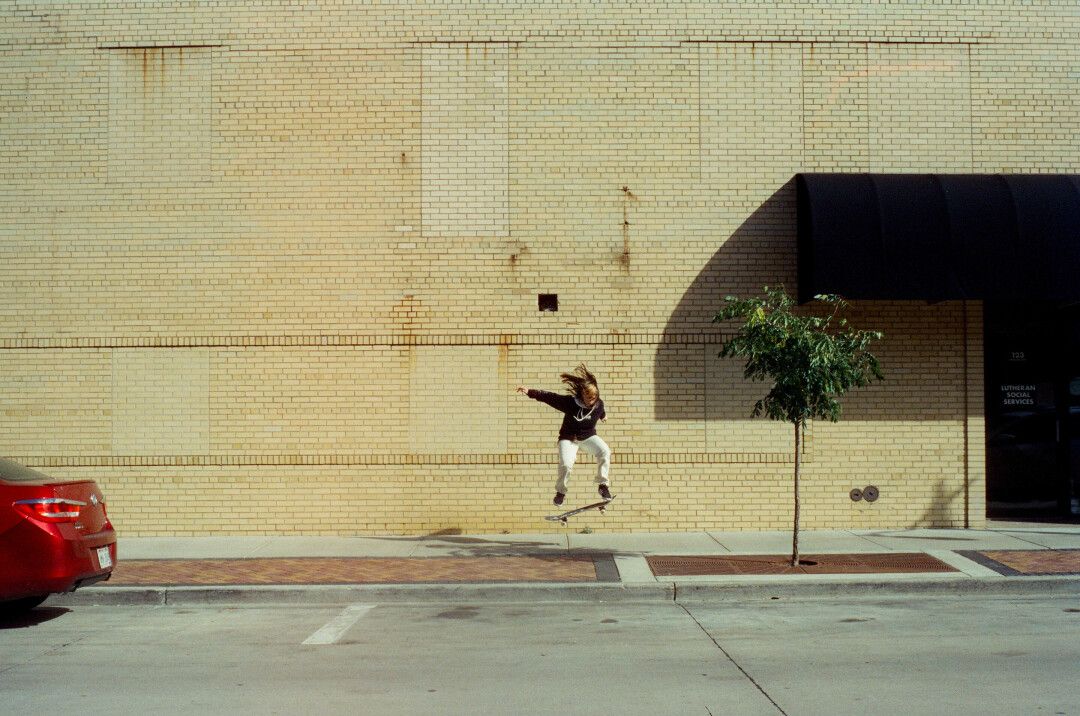
The skate space at Boyd Park isn’t the only idea currently on the table. Now serving a volunteer three-year term on the city’s Parks and Waterway Commission, Passion Board Shop’s Chris Johnson is currently working on a concept to integrate 10 multi-use obstacles throughout Eau Claire’s trail network. Skateboarders, roller skaters, BMX bikers, and kids riding scooters could use these obstacles, which Johnson hopes will cost less than $5,000 each. The plan would be to split bike paths at various points to enable the obstacle – small jumps, rails, etc. – to run parallel, and then merge back to the path.
The idea is,” Johnson explained, “that since we aren’t realistically going to get a skate park within skateboarding distance of everywhere a kid lives in town, we can at least do this.”
Regardless of how it’s achieved, a successful skate scene – complete with infrastructure to support it – can be a major cultural contributor to a community, and an untapped resource in getting a whole subculture of youth engaged in their community in way that speaks to them, according to local skaters.
Among a litany of benefits, skate parks have been shown to improve the health and well-being of users, and reduce social exclusion and deviant behavior.
And in this way, they can benefit not only the users but the entire community, well into the future.
And the future of the Eau Claire skateboarding scene – ultimately – is in our hands.
CHECK OUT MORE ABOUT THE SKATEBOARDING SCENE
For more information about the Eau Claire skateboarding scene, visit the Eau Claire Skaters Association’s Facebook page, their Instagram page at @eauclaireskaters, or check out Passion Board skate shop at passionboardshop.com. Donations for the skate park project can be mailed to the Community Park Association, care of Eau Claire Skaters Association at their P.O. Box 741 in Eau Claire, Wisconsin.



















